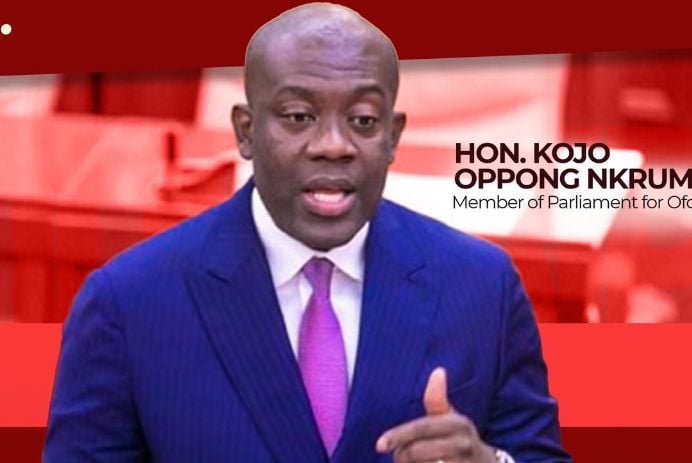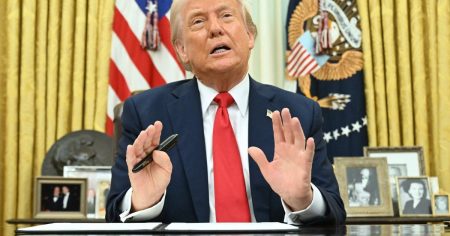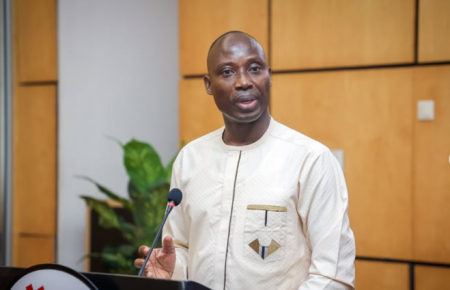The imposition of a 10% tariff on Ghanaian imports by the United States, as part of a broader set of tariffs announced by then-President Donald Trump, has sparked concern within Ghana’s political and economic spheres. Kojo Oppong Nkrumah, a prominent member of Parliament and Ranking Member on the Economy and Development Committee, has called for a proactive governmental response, urging negotiations with the US to secure a potential waiver from these tariffs. This call to action underscores the potential negative ramifications of the tariffs on Ghana’s economy, particularly its export-oriented sectors. The tariffs represent a significant challenge to Ghana’s competitiveness in the global market and threaten to disrupt businesses and livelihoods dependent on trade with the US.
The timing of these tariffs is particularly problematic for Ghana, coinciding with the country’s efforts to leverage the African Continental Free Trade Area (AfCFTA) to enhance its economic diplomacy and expand trade within the African continent. Oppong Nkrumah argues that the US tariffs undermine these efforts and necessitate immediate diplomatic engagement to mitigate their impact. He emphasizes the importance of maintaining Ghana’s competitive edge, especially given the government’s focus on developing a 24-hour economy. The success of this initiative, which aims to stimulate economic activity and create new business opportunities, is intrinsically linked to a robust export sector, which could be significantly hampered by the imposed tariffs.
Oppong Nkrumah contends that the imposition of tariffs by the US necessitates a strategic response from the Ghanaian government to protect its economic interests and maintain its competitiveness in the international market. The tariffs pose a direct threat to Ghana’s export-oriented businesses and the livelihoods they support. Moreover, they complicate the implementation of the AfCFTA, a key element of Ghana’s economic diplomacy aimed at boosting intra-African trade. The government’s vision of a thriving 24-hour economy, reliant on a dynamic export sector, is also jeopardized by these trade restrictions. Thus, effective diplomatic engagement with the US to secure a waiver is crucial for mitigating the potential adverse consequences of these tariffs.
The tariffs imposed by the US are part of a larger trend of protectionist trade policies adopted by the Trump administration, targeting various countries including China and members of the European Union. These policies reflect a shift away from global free trade principles and have sparked international trade tensions. The 34% levy on Chinese goods and the 20% tax on EU products further exemplify this protectionist approach, creating a complex web of trade disputes and uncertainties in the global economic landscape. Ghana’s situation highlights the vulnerability of smaller economies to such protectionist measures, emphasizing the need for proactive diplomatic efforts to navigate the changing dynamics of international trade.
The Ghanaian government has initiated steps to address the issue, with the Minister of Foreign Affairs, Samuel Okudzeto Ablakwa, engaging in discussions with the US Ambassador to Ghana. This diplomatic dialogue is a crucial first step in addressing the concerns raised by the tariffs and seeking a resolution that safeguards Ghana’s economic interests. The outcome of these discussions will be critical in determining the extent to which Ghana can mitigate the potential negative impacts of the tariffs on its economy. Furthermore, the government’s response will be a key indicator of its commitment to supporting its export sector and ensuring the success of its economic development initiatives.
The imposition of tariffs by the US underscores the importance of diversification in Ghana’s export markets. Over-reliance on a single market, such as the US, makes a country vulnerable to policy changes and trade disputes. The current situation highlights the need for Ghana to explore and develop trade relationships with other countries to reduce its dependence on the US market. This diversification strategy will enhance Ghana’s resilience to external shocks and contribute to long-term economic stability. Furthermore, it will strengthen Ghana’s negotiating position in future trade discussions by providing alternative market access opportunities.














